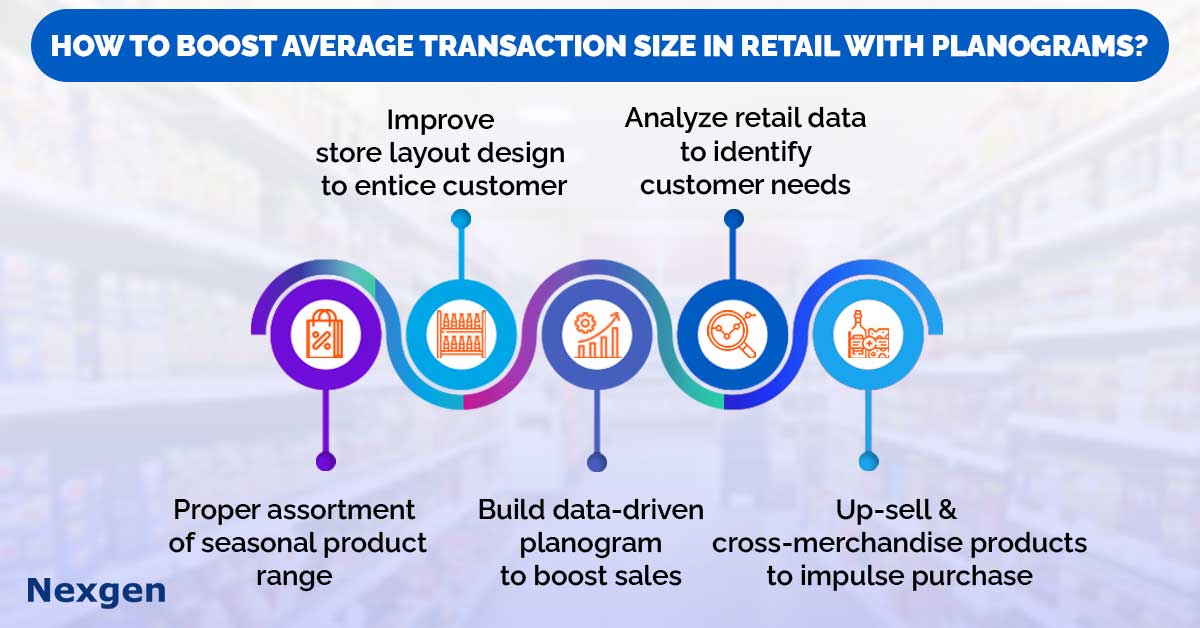Marketing your retail store and driving customers to the store is all well and good, but if people do not purchase much at all, it could result in great loss. That is why you need to think about maximizing retail sales, and part of doing it is boosting average transaction size.
What is Average Transaction Size?
It is the average amount a shopper spends in a single shopping period. This helps to understand whether a retailer is offering the right product assortment or not. In reality, it also influences retailers to design the store layout, product assortment and execute the right products on store shelves. Maximize your retail sales by increasing your store’s average transaction size with the help of planogram software. Planograms are the visual merchandising tool, that helps retailers effectively plan and execute products on store shelves. Check out a few planogram tips to increase average transaction value in retail stores:

- Up-sell and cross-merchandise products: If you are looking to boost average transaction size in your retail store, one of the best tactics is to up-sell and cross-merchandise products. Creating a shopping experience by placing complementary products next to each other can remind shopper’s of any additional items they need to purchase. This results in impulse purchases and exposes shoppers to more items to boost sales. For instance, if a shopper is about to buy meat, placing firelighters or barbeque equipment next to the meat can make them purchase both. Retailers can also convince a shopper to upgrade the product that they are planning to buy with up-selling items. If a customer is to buy the cheapest cell phone in your store, upselling would be convincing them to purchase a more expensive cell phone with a better quality.
- Improve store layout design: It is true that the layout of your store can entice customers to find items they need without any fuss. If your shoppers browse your store, moving from aisle to aisle, they would expect to have complementary categories next to each other. For example, dairy products like milk, cheese, butter, and ice-creams. They might expect them to find it in the cold drinks section. A logical product flow will help to keep them engaged and entice them to purchase more.
- Build data-driven planograms & analyze retail data: By building planograms, retailers can provide maximum shelf space for top-performing products. To build planograms, retailers use data, which make them identify what products should be placed on each store’s shelf and help to understand what your shopper’s needs are. For instance, a certain beverage item is your fast-moving item for the month in its category, and you would like to give more facings for such items on your planograms to increase sales. Analyzing past retail sales data helps you to identify customer’s’ needs and make retailers create planograms where shoppers can easily find the products they need.
Overview of Nexgen POG
Nexgen POG is a robust and user-friendly cloud-based visual merchandising tool. It is designed for quick and efficient planogramming with minimal effort. Planograms can be designed by easily dragging and dropping the products. The multi-device compatibility feature of POG allows you to obtain, share and edit planograms on any device, including your phone. It helps in designing store-specific planograms for increased product visibility and sales.
Get Your Free Trial Now!